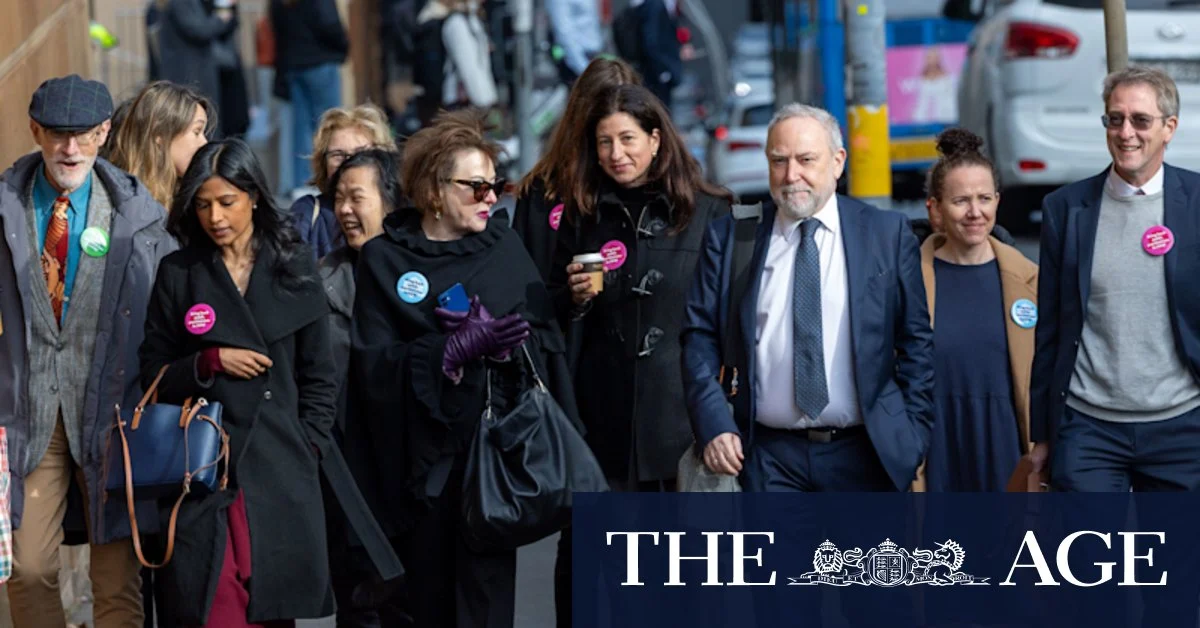“None of us thought we’d be here a year ago. We thought, perhaps naively, that we’d be able to negotiate with the government … and we’d be able to point out what was found today in court, which is that the public [mental] health sector is struggling,” he said. “We’ve seen that our patients are not getting the care that they need, and we need investment. That’s what we vitally need.”
Loading
Mental Health Minister Rose Jackson said she was open to broader reforms, and encouraged psychiatrists to return to the state’s public system.
“We are already leaning into ways to bring them back in,” she said. “The focus now is all about patients … what is the best way to deliver good mental health care for consumers in NSW.”
About 60 of those left the system, with most deferring their resignations until after the IRC determination. Some converted to higher-paying visiting medical officer and locum contracts.
Psychiatrists were seeking a 25 per cent single-year pay rise, which they said would close the gap with other states where doctors can earn up to 30 per cent more.
The government initially did not budge from offering the psychiatrists anything more than the 10.5 per cent three-year increase given to all NSW public servants.
It later proposed a six-month pilot to find “productivity efficiencies” that would enable further pay increases, and a 10 per cent onerous duties increase.
Chin said on Thursday the fiscal impact of the allowance would be a “relatively modest” $10 to 15 million, about half the $30 million quoted for the psychiatrists’ initial 25 per cent claim.
Jackson earlier this year said the claim would cost taxpayers $700 million, a figure later contradicted by internal data obtained by the Herald revealing the total cost was closer to $500 million over four years.
The Royal Australian and New Zealand College of Psychiatrists (RANZCP) and the union cited these vacancies as one of the main factors driving the mass resignation, with members warning they could not properly care for patients while managing the additional workload caused by staff shortages.
Dr Pramudie Gunaratne, the college’s NSW chair, said the court’s decision was “the first step” towards offering wages competitive with other states.
“We’re not going to keep our best and brightest doctors in NSW if we don’t invest in our mental health system,” she said.
The verdict was delayed in April when the broader junior and senior medical workforce represented by ASMOF staged an unprecedented three-day strike, defying the commission’s warning that doing so could derail a resolution for their psychiatry colleagues.
The union agreed to refrain from further industrial action for three months, allowing the psychiatry case to conclude.
The government this week began six weeks of arbitration on a new deal for the state’s nurses and midwives, and will meet ASMOF again in the industrial court in November to continue arbitrating a deal for all junior and senior medical staff, after the union’s members overwhelmingly rejected their latest pay offer.
Start the day with a summary of the day’s most important and interesting stories, analysis and insights. Sign up for our Morning Edition newsletter.


